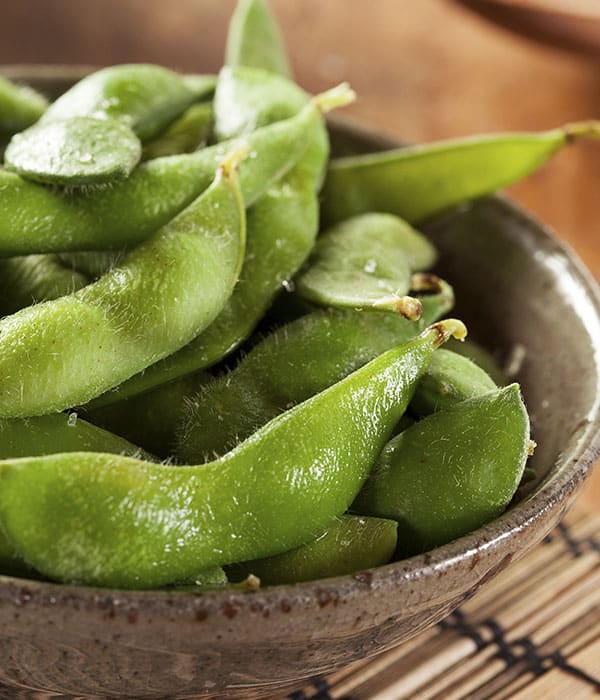
Maintaining a healthy diet is important, even if you don’t have joint pain. However, if you do have joint pain caused by osteoarthritis or inflammatory arthritis, you may want to incorporate these foods into your diet to help with inflammation and joint health.
1. Omega-3 Fatty Acids
Omega-3 fatty acids are known to be helpful in fighting inflammation. As an added bonus, they are also good for heart health. Reducing inflammation is key to managing pain and restoring function. Omega-3s may be particularly helpful for people with rheumatoid arthritis, an inflammatory arthritis that causes swelling in the joints.
Find it in: fatty fish like salmon, tuna, sardines, mackerel, and herring; flaxseeds; walnuts; edamame
2. Calcium
Calcium is essential for keeping bones healthy and strong. It also helps with muscle control and blood circulation. Our bodies do not naturally produce calcium, so we need to obtain it through the foods we eat. When we do not get enough calcium, our bodies begin to remove it from the bones. This can eventually weaken the bones and lead to osteoporosis.
Most people get calcium from dairy products, but there are non-dairy foods that contain calcium as well.
Find it in: dairy products like milk, cheese, and yogurt; fortified cereal; edamame; dark, leafy greens like spinach and kale; enriched soy or almond milk
3. Vitamin D
Vitamin D goes hand-in-hand with calcium–your body needs vitamin D to properly absorb calcium from food. Our bodies produce vitamin D when exposed to sunlight, but too much sunlight also exposes our bodies to excessive UV radiation, which can lead to skin cancer. This is why it is recommended that you get vitamin D through foods or supplements.
Find it in: fatty fish like salmon, tuna, sardines, mackerel, and herring; fortified milk; fortified orange juice; egg yolks; fortified cereal
4. Vitamin C
Vitamin C is helpful in reducing the risk of inflammatory arthritis and maintaining healthy joints. The key is to get the right amount—not too much or too little. The recommended daily intake of vitamin C is 75 milligrams for women and 90 milligrams for men.
Find it in: oranges, grapefruits, limes, strawberries, mangos, pineapple, bell peppers
5. Anthocyanins
Anthocyanins are antioxidants found in red and purple fruits. Not only do anthocyanins give the fruits their pigment, they can also be helpful in lowering levels of C-reactive protein, a marker of inflammation.
Find it in: red and purple fruits like cherries, strawberries, raspberries, blueberries, and blackberries
6. Polyphenols
Polyphenols are antioxidants that may help to reduce joint inflammation and slow the breakdown of cartilage. They may also improve bone strength and help the body fight off infections, which may be helpful for patients with rheumatoid arthritis who need to take immunosuppressive medications.
Find it in: teas (green, black, oolong, and white), especially matcha (powdered green tea leaves) because it has a higher concentration of polyphenols
7. Sulforaphane
Studies have found that sulforaphane may block enzymes that destroy joint cartilage and help to reduce inflammation. Both of these things can be very helpful for patients with osteoarthritis.
Find it in: cruciferous vegetables like broccoli, Brussels sprouts, cabbage, cauliflower, and kale
8. Diallyl Disulfide
Research has also found that diallyl disulfide may limit cartilage-damaging enzymes. According to a study, people who regularly ate foods containing this substance had fewer signs of early osteoarthritis.
Find it in: foods from the allium family like garlic, onions, and leeks
You’ll find that the foods listed above are generally part of any healthy diet. You don’t need to seek out any out-of-the-ordinary foods to maintain a diet that promotes bone and joint health. Plus, these foods contain numerous other health benefits that make it worth including them in your diet even if joint pain isn’t a daily issue.